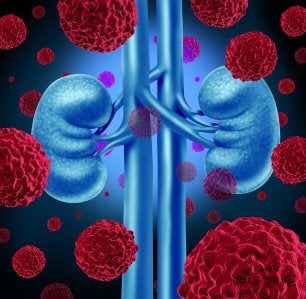-
Answering Common Questions About the MonaLisa Touch Procedure

Women who are experiencing sexual health issues while going through menopause previously had few treatment options. Hormone replacement therapy or estrogen creams aren’t suitable for every woman and healthcare providers typically don’t recommend hormone treatment on a long-term basis, given the health risks. Now, there’s a new option for women with vaginal atrophy or vaginal dryness. The MonaLisa Touch procedure is a minimally invasive, painless treatment that can help women resolve their symptoms.
Who Can Benefit from this Procedure?
Any woman who is diagnosed with vaginal atrophy may benefit from the MonaLisa Touch procedure. Vaginal atrophy is commonly associated with menopause. However, it may also occur in women with hormonal changes due to breastfeeding or breast cancer. This condition is characterized by the inflammation of the vaginal walls , along with thinning and dryness. Many women with vaginal atrophy suffer from painful intercourse and painful urination.How Does It Work?
The MonaLisa Touch procedure involves the insertion of a laser tip into the vagina. It will feel similar to the annual pelvic exam and Pap test; however, it only takes about five minutes. The device delivers pulses of laser energy to the vagina to stimulate the production of collagen.How Many Treatments Will I Need?
Women who are good candidates for the MonaLisa Touch procedure typically undergo three sessions, which are spaced six weeks apart. Following this initial treatment, women can schedule a once per year treatment session with their urologist to ensure that they stay symptom-free.How Soon Will I Notice Results?
Many women who undergo this innovative treatment report feeling immediate relief of the symptoms of vaginal dryness. Even if relief of symptoms isn’t immediate, women almost always experience results by the second treatment session.If you have any other questions about the MonaLisa Touch procedure, contact our WISH clinic , Women’s Institute for Sexual Health a division of Urology Associates, P.C., at (615)250-9265. Our urology team offers compassionate and confidential diagnostic and therapeutic services for sexual health in Nashville. We also provide treatment options for patients with erectile dysfunction, kidney stones, and bladder cancer.
-
Addyi Approved by the FDA!
-
Join Vikki Pedigo of Urology Associates for a Webinar!
Urology Associates is happy to announce that our very own Vikki Pedigo will be participating in a webinar with
 Pearl Point Cancer Support.
Pearl Point Cancer Support. Women’s reproductive cancers and treatment may cause side effects including fatigue, sexual dysfunction, and digestive issues. Join Vikki F. Pedigo, MSN, WHNP-BC, Nurse Practitioner at the Women’s Institute for Sexual Health in Nashville, TN to explore strategies and techniques to help you manage the side effects of reproductive cancers. Margaret Martin RD, MS, LDN, CDE Nutrition Educator at PearlPoint Cancer Support will also provide tips and suggestions for controlling digestive issues, combating fatigue, and maintaining a healthier weight.
The webinar will take place on Wednesday, August 19 th from 11:00am-12:00pm Central time anyone who wants to listen in can register by clicking the link below.
-
Exploring Kidney Cancer Risk Factors
 Kidney cancer accounts for approximately 3% of all adult cancers in the United States. This number may seem insignificant on its own, but when you consider that it translates to approximately 32,000 new cancer cases annually the number doesn’t seem so small. Kidney cancer claims about 12,000 lives each year, most of whom are men between the ages of 50 and 70. Although we don’t yet know what causes kidney cancer, we do recognize that certain risk factors are linked to an elevated risk for developing the disease. If you can positively identify any of these kidney cancer risk factors, schedule a screening with a urologist in Nashville .
Kidney cancer accounts for approximately 3% of all adult cancers in the United States. This number may seem insignificant on its own, but when you consider that it translates to approximately 32,000 new cancer cases annually the number doesn’t seem so small. Kidney cancer claims about 12,000 lives each year, most of whom are men between the ages of 50 and 70. Although we don’t yet know what causes kidney cancer, we do recognize that certain risk factors are linked to an elevated risk for developing the disease. If you can positively identify any of these kidney cancer risk factors, schedule a screening with a urologist in Nashville . Unhealthy Lifestyle Habits
Certain lifestyle habits that might be considered unhealthy have shown a causal link with kidney cancer. Smoking, for example, increases the risk of getting kidney cancer. People who are overweight and have a poor diet are also at a higher risk of getting kidney cancer . You might also be at risk if you are regularly exposed to certain chemicals that increase the risk for kidney cancer, including cadmium, herbicides, and certain organic solvents.Inherited Conditions
Kidney cancer can sometimes be caused by one of six rare inherited conditions. Although people who have these conditions account for only a small portion of total kidney cancer patients overall, people who have these conditions have a much higher risk for developing kidney cancer compared to others. These inherited conditions are:- Birt-Hogg-Dube syndrome
- Family renal cancer
- Hereditary papillary renal cell carcinoma
- Hereditary leiomyoma-renal cell carcinoma
- Hereditary renal oncocytoma
- Von Hippel-Lindau disease
Certain Medications
Phenacetin, a once popular pain-reliever, has been linked to kidney cancer but has not been prescribed in the United States for over 20 years. Today there are certain drugs used to treat high blood pressure that have been linked to an elevated risk of kidney cancer, though it’s not clear whether the link is related to the medication or the high blood pressure. Ask your doctor if any of the medication you are on has been shown to elevate one’s risk for kidney cancer.If you are worried that you might be at risk for kidney cancer, visit Urology Associates P.C. for a cancer screening. We are the leader in urological care in Nashville and throughout Tennessee. If you are diagnosed with kidney cancer, we provide the most advanced and aggressive kidney cancer treatment to help you recover. Call us toll-free at (888) 329-7700 to find a urologist in your area.
-
Basic Facts About Erectile Dysfunction
 Although erectile dysfunction is a very serious condition, the perception of ED is made worse thanks to myths and misinformation floating around on the internet. The first thing to know about ED is that while it is common, it is not a normal part of aging and almost every case of ED is treatable. It is also important to know that erectile dysfunction is not caused solely by low libido. There are numerous risk factors that contribute to ED, many of which are manageable. These risk factors include:
Although erectile dysfunction is a very serious condition, the perception of ED is made worse thanks to myths and misinformation floating around on the internet. The first thing to know about ED is that while it is common, it is not a normal part of aging and almost every case of ED is treatable. It is also important to know that erectile dysfunction is not caused solely by low libido. There are numerous risk factors that contribute to ED, many of which are manageable. These risk factors include: - Tobacco use
- Drug and alcohol use
- Being overweight
- Psychological conditions (stress, anxiety, depression, etc.)
- Certain medical treatments
- Certain medical conditions
- Injuries to the nerves or arteries that control erections
The ED specialists here at Urology Associates P.C. in Tennessee will tailor treatment plans to address the specific issues that are interfering with your ability to achieve or maintain an erection. Our team of experienced urologists appreciate your need for compassion and discretion while you seek treatment for ED. For additional information, call us at (888) 329-7700.
Recent Posts
categories
- Uncategorized
- Bladder Cancer
- Women's Sexual Health
- MonaLisa Touch
- Urology
- Urologist
- Erectile Dysfunction
- Kidney Cancer
- Incontinence
- Prostate
- MonaLisa Touch Laser Treatment
- Kidney Stones
- Urinary Tract Infections
- Event
- Sexual Dysfunction
- Testicular Cancer
- Prostate Cancer
- Urology Surgery Center
- urinary incontinence
- vaginismus
- noncoital pain disorder
- Hypoactive Sexual Desire Disorder
- Infographic
- provenge
- Xofigo
- robotic surgery
- hormone replacement
- diabetes
- renal cell carcinoma
- pelvic pain
- hematuria
- sexual health
- chronic testicular pain
- premature ejaculation
- Men's Health Clinic
- Dr. Melvin Seard
- Interstitial Cystitis
- vasectomy
- overactive bladder
- vaginal atrophy
- nocturia
- bladder infections
- urethral strictures
- Acute Epididymitis
- low sex drive
- circumcision
- pelvic floor dysfunction
- Peyronie's Disease
- prostatitis
- female sexual dysfunction
- varicocele
- difficult urination
- low libido
- PSA levels
- male fertility
- penile prosthesis
- prostatic intraepithelial neoplasia
- male infertility
- estrogen levels
- nurse navigator
- stress urinary incontinence
- vaginal yeast infection
- elevated psa
- painful sex
- adult circumcision
- epididymitis
- OAB
- kidney infection
- penile cancer
- pelvic organ prolapse
- Vasectomy Reversal
- bone health
- cystectomies
- clinical trials
- bloody urine
- Advanced Therapeutic Center
- WISH MedSpa
- neurogenic bladder
- WISH Team
- prostate biopsies
- BPH
- fecal incontinence
- lithotripsy
- osteoporosis
- kidney cysts
